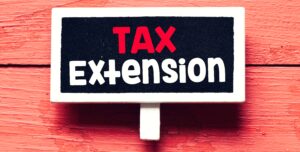Military Family Tax Relief Act of 2003
Military Family Tax Relief Act of 2003
On Nov. 11, 2003, President Bush signed into law the Military Family Tax Relief Act of 2003. Among its provisions are these tax breaks related to military personnel:
Death benefits
The death gratuity paid to survivors of deceased Armed Forces members rises to $12,000 and is not taxable (was $6,000, with $3,000 tax-free). Effective for deaths occurring after 9/10/2001. Taxpayers amending a return to use this provision should put “Military Family Tax Relief Act” in red in the top margin of Form 1040X.
Sale of principal residence
A taxpayer on qualified official extended duty in the U.S. Armed Services or the Foreign Service may suspend for up to 10 years of such duty time the running of the 5-year ownership-and-use period before the sale of a residence. This applies when the duty station is at least 50 miles from the residence – or while the person is residing under orders in government housing – for a period of more than 90 days or for an indefinite period. This election, which is an option for the taxpayer, applies to only one property at a time. Retroactive for home sales after May 6, 1997. Although taxpayers normally have only three years to file an amended return, qualifying taxpayers who sold a residence before 2001 had until Nov. 10, 2004, to amend their returns for this purpose. Military personnel and individuals in support of the U.S. Armed Forces serving in a combat zone during the period Nov. 11, 2003, through Nov. 10, 2004, may be entitled to additional time to amend their returns. Taxpayers amending a return to use this provision should put “Military Family Tax Relief Act” in red in the top margin of Form 1040X.
Deduction for overnight travel expenses of National Guard and Reserve members
Reservists who stay overnight more than 100 miles away from home while in service (e.g., for a drill or meeting) may deduct unreimbursed travel expenses (transportation, meals and lodging) as an above-the-line deduction. The deduction is limited to the rates for such expenses authorized for federal employees, including per diem in lieu of subsistence. Effective for tax years after 2002. Taxpayers use Form 2106 or 2106-EZ to figure the deduction amount and enter it as an adjustment to income on Form 1040, line 24. For 2003, they carried it as a “write-in” to Form 1040, line 33, put the letters “RC” and the amount on the dotted line and included this subtraction in the entry for line 33.
Dept. of Defense Homeowners Assistance Program
Payments made after Nov. 11, 2003, under this program to offset the adverse effects on housing values of military base realignments or closures will be excludable from income as a fringe benefit.
Combat zone extensions expanded to contingency operations
The various extensions granted to combat zone participants to file returns or pay taxes will also apply to those serving in Contingency Operations, as designated by the Secretary of Defense. Effective for any acts whose deadline has not expired before Nov. 11, 2003.
Dependent care assistance programs
Clarifies that dependent care assistance programs for military personnel are excludable benefits. Effective for tax years after 2002.
Military academy attendees
The ten percent tax on payments from a Qualified Tuition Program or Coverdell Education Savings Account that are not used for educational expenses does not apply to attendees of the U.S. Military, Naval, Air Force, Coast Guard or Merchant Marine Academies, to the extent the payments do not exceed the costs of advanced education. Effective for tax years after 2002.
—————————————————————————————————————————————————————————————————————
We hope you found this article about “Military Family Tax Relief Act of 2003” helpful. If you have questions or need expert tax or family office advice that’s refreshingly objective (we never sell investments), please contact us or visit our Family office page or our website at www.GROCO.com. Unfortunately, we no longer give advice to other tax professionals gratis.
To receive our free newsletter, contact us here.
Subscribe our YouTube Channel for more updates.

Alan Olsen, is the Host of the American Dreams Show and the Managing Partner of GROCO.com. GROCO is a premier family office and tax advisory firm located in the San Francisco Bay area serving clients all over the world.
Alan L. Olsen, CPA, Wikipedia Bio

GROCO.com is a proud sponsor of The American Dreams Show.

The American Dreams show was the brainchild of Alan Olsen, CPA, MBA. It was originally created to fill a specific need; often inexperienced entrepreneurs lacked basic information about raising capital and how to successfully start a business.
Alan sincerely wanted to respond to the many requests from aspiring entrepreneurs asking for the information and introductions they needed. But he had to find a way to help in which his venture capital clients and friends would not mind.
The American Dreams show became the solution, first as a radio show and now with YouTube videos as well. Always respectful of interview guest’s time, he’s able to give access to individuals information and inspiration previously inaccessible to the first-time entrepreneurs who need it most.
They can listen to venture capitalists and successful business people explain first-hand, how they got to where they are, how to start a company, how to overcome challenges, how they see the future evolving, opportunities, work-life balance and so much more..
American Dreams discusses many topics from some of the world’s most successful individuals about their secrets to life’s success. Topics from guest have included:
Creating purpose in life / Building a foundation for their life / Solving problems / Finding fulfillment through philanthropy and service / Becoming self-reliant / Enhancing effective leadership / Balancing family and work…

MyPaths.com (Also sponsored by GROCO) provides free access to content and world-class entrepreneurs, influencers and thought leaders’ personal success stories. To help you find your path in life to true, sustainable success & happiness. It’s mission statement:
In an increasingly complex and difficult world, we hope to help you find your personal path in life and build a strong foundation by learning how others found success and happiness. True and sustainable success and happiness are different for each one of us but possible, often despite significant challenges.
Our mission at MyPaths.com is to provide resources and firsthand accounts of how others found their paths in life, so you can do the same.
Business Valuation Experience
Business Valuation Experience Valuation Services Valuation Process Sample Report Glossary of Terms The Business Valuations group at Greenstein Rogoff Olsen & Co provides the expertise of a large big four firm with the hands on individualized service of a small local firm. We are committed to provide our clients and their advisors with the highest…
Stock Option
Stock Option Valuation Services Valuation Process Valuation Experience Sample Report Glossary of Terms It is extremely important in today’s regulatory environment that stock options are managed correctly, which includes all the various valuation issues that surround options. Because of this, the valuation analyst must have a working knowledge of stock option plans, in addition…
IRS Extension 409A
IRS Extension 409A The IRS has issued Notice 2007-86 which delay the effective date of the Proposed Regs under Section 409A until January 1, 2009 and by generally extending earlier transitional relief. This provides taxpayers additional transitional relief to come into compliance with forthcoming final regs. Options granted before 2009 won’t be considered as violating…
ESOP Valuation Issues
ESOP Valuation Issues Q&A (Employee Stock Ownership Plan) Valuation Services Valuation Process Valuation Experience Sample Report Glossary of Terms ESOPs have become an effective tool in corporate finance and tax planning. Not only do they provide retirement benefits and incentives to employees but an ESOP can provide unique ways to transition company management in tax…



